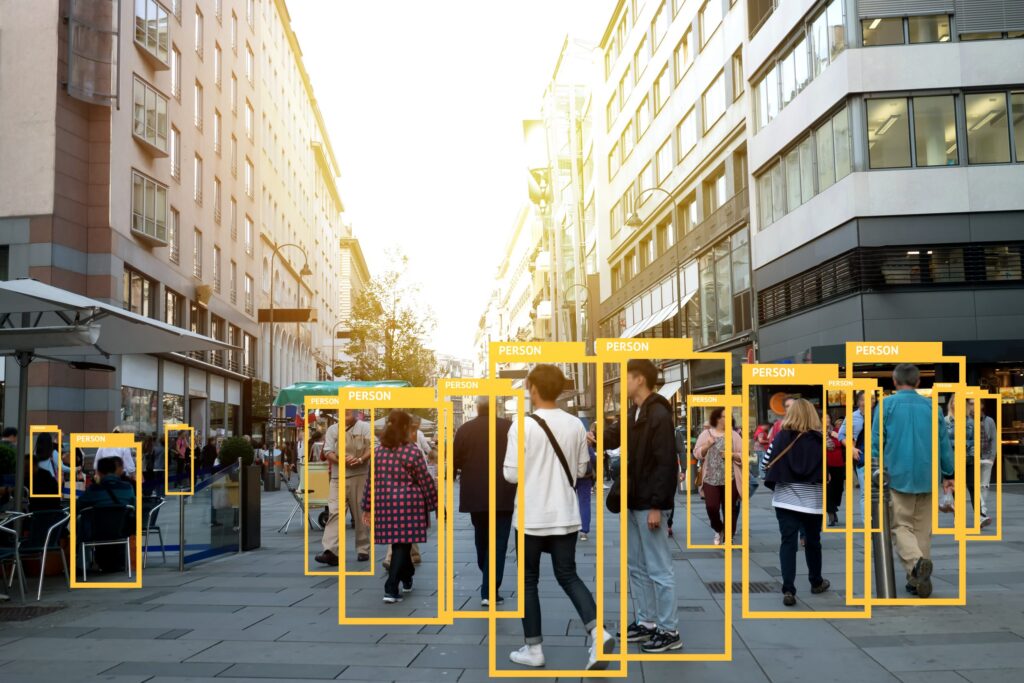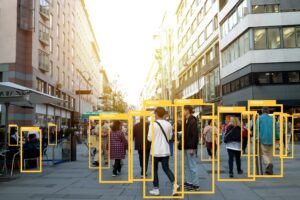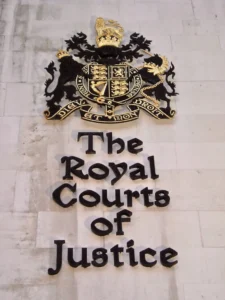The proposed new US law comes as American police departments use facial recognition to identify allegedly violent Black Lives Matter protesters.
A bill going through the US Senate hopes to extend nationwide some of the restrictions on the collection of facial-recognition information already imposed by an Illinois state law & expand private citizens’ legal powers to sue companies that break them.
The news came as US police depts. are coming under criticism for using facial recognition to arrest allegedly violent Black Lives Matter (BLM) protesters well after the protests were long over.
Bernie Sanders
The National Biometric Information Privacy Act [PDF], introduced by Sens. Jeff Merkley (D-Ore.) and Bernie Sanders (D-Vt.), extends 2 rules that already exist in the ‘Illinois Biometric Information Privacy Act (BIPA)’: Limiting how people’s biometric data is collected, & giving them rights to act legally against a company that doesn’t honour this protection.
The proposed US national law would also require that a company acquires written consent before recording anyone’s biometric data, & also provides for both private citizens & US State Attorneys General to sue companies that break these rules.
Controversial
This shows that US lawmakers are continuing to restrict facial-recognition technology in both law enforcement, & also its use by companies & businesses.
The technology has been especially controversial in law-enforcement, with police departments in various American cities nationwide reportedly using the technology to track down, & arrest, individuals who allegedly were violent during BLM protests.
Usage
NBC affiliate WTVJ reported that Miami Police used Clearview AI to identify & arrest a woman for allegedly throwing a rock at a policeman;
Columbia, SC police reportedly used it to arrest protesters long after the event, according to local paper The State;
Philadelphia Police use it to identify protestors from photos posted to Instagram, says the The Philadelphia Inquirer.
NYPD
Gothamist reported that NYPD officers raided the apartment of someone who allegedly shouted in an officer’s ear during a protest, following identifying the person by facial recognition.
Biometric data that would fall under the jurisdiction of the proposed national law includes: A retina or iris scan; a voiceprint; a faceprint, including any derived from a photograph; fingerprints or palm prints; & “any other uniquely identifying information based on the characteristics of an individual’s gait or other immutable characteristic of an individual,” says the bill.
The law makes a clear specification between people’s actual consent, & an agreement that might be bundled into an employment contract or terms of service, so companies cannot put in permissions to collect biometric information in the small print.
Consent
“We can’t let companies scoop up or profit from people’s faces & fingerprints without their consent,” Merkley observed in a press release. “We have to fight against a ‘big-brother’ surveillance state that eradicates our privacy & our control of our own information, be it a threat from the government or from private companies.”
Restrictions
The proposed law imposes restrictions on data collections by private companies in their retail locations & workplaces, & also into residential neighbourhoods through use of the technology’s integration with home-security services such as Amazon Ring & Google Nest.
Merkley already was part of a drive by federal lawmakers to ban the use of facial-recognition technology altogether by law enforcement nationwide through the Facial Recognition & Biometric Technology Moratorium Act, proposed by Merkley alongside number of fellow Democratic lawmakers.
Litigation
At US state level, the Illinois BIPA already has been successfully used in litigation. If the federal law passes, it’s likely that there will be many more of these cases, which could cost tech companies 100s of millions of dollars, if early precedent is any indication of the future.
Facebook already had to pay out $550 million to settle a class-action suit filed under the BIPA concerning the social-media giant’s alleged scanning of facial biometrics without people’s consent, when the company introduced its “tag suggestions” feature.
Illinois Law
The American Civil Liberties Union (ACLU) also has used the Illinois law to sue New York-based start-up Clearview AI for building a database of biometric face-identification data of billions of people, & selling it to 3rd parties without consent or knowledge.
The pending case, filed in the Circuit Court of Cook County in Illinois on behalf of a number of organisations comprised of vulnerable communities, said Clearview violated the BIPA for collecting faceprints, or unique biometric identifiers similar to someone’s fingerprint or DNA profile, & then selling to 3rd parties.
https://www.cybernewsgroup.co.uk/virtual-conference-september/










